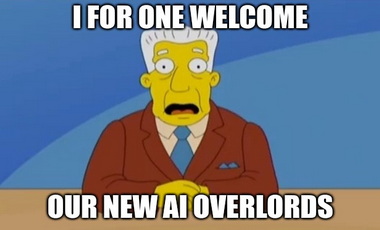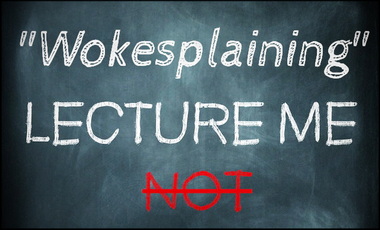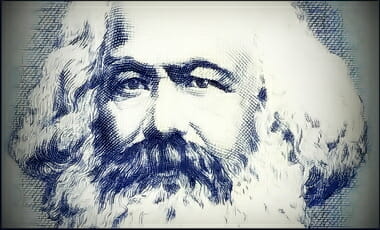(First posted in October of 2023) Okay… two main themes came to my mind at the most recent Bible study at church… the first is the theme, “COURAGE.” The second is the idea of the “HOUNDS OF HEAVEN“
BTW, there is a sermon rolling around in here somewhere for you pastors/speakers
(Skip my linked contents to start reading)
JUMP DOWN TO:
UNDER – COURAGE
- (A) Shelby Steele (Courage)
- (B) End Of Sunday’s Sermon (Paul & Winston Churchill)
- (Video Montage on “Courage”)
- (C) Men’s Bible Study (Saul, David, Goliath)
- Hebrews 10:35-39 (Don’t Take in Your Sails)
- Excerpted a Few Pages from Mark Goldblatt’s Book, “I Feel, Therefore I Am” (PDF)
- “Courage,” the Rarest of Traits (Dennis Prager)
UNDER – HOUNDS OF HEAVEN (JUMP)
- 1st Samuel 16:14-23 (Saul’s “Evil Spirit”)
- Did God “Create” Evil |Isaiah 45:7 (Separate Post of Mine)
- Tea with C.S. Lewis (The Lion, the Witch, and the Wardrobe)
- God’s Reckless Love For Us (Worship Song by Cory Asbury – live)
- God’s Woodshed (J. Vernon McGee Video)
- Dragged Into the Kingdom, Kicking and Screaming (The Voyage of the Dawn Treader)
- “Snippet” of My Testimony (Separate Post)
- 1st John 4:13-19 (God Loves Us… First…)
- The beauty, wonder, and distinction of God is His amazing grace (Sniffing Us Out)
COMMENTARIES
- Robert D. Bergen, 1, 2 Samuel, vol. 7, The New American Commentary (Jump)
- Herbert Livingston, “2191 רָעַע,” in Theological Wordbook of the Old Testament (Jump)
- Ronald F. Youngblood, 1, 2 Samuel, The Expositor’s Bible Commentary: Deuteronomy, Joshua, Judges, Ruth, 1 & 2 Samuel (Jump)
- Walter Brueggemann, First and Second Samuel, Interpretation, a Bible Commentary for Teaching and Preaching (Jump)
PDFs
- The Significance of The Verb Love In The David-Jonathan Narratives In 1 Samuel (PDF)
- Hamôr Lehem (1 Samuel 16:20): “So Jesse took a donkey loaded with bread, a skin of wine, and one young goat and sent them by his son David to Saul.” — Ass-Load (getting into the weeds of the Masoretic Text | PDF)
- Old Testament Cross-Culturalism: Paradigmatic or Enigmatic? (PDF)
Paradigmatic: 1. Of or relating to a paradigm. 2. Linguistics Of or relating to the set of substitutional or oppositional relationships a linguistic unit has with other units, such as the relationship between (n) in not and other sounds that could be substituted for it in the same context, like (t) and (p). Together with the set of syntagmatic relations, paradigmatic relations describe the identity of a linguistic unit in a given language. (American Heritage Dictionary)
Enigmatic: Of or resembling an enigma; puzzling: a professor’s enigmatic grading system. See Synonyms at mysterious. (American Heritage Dictionary)
COURAGE
In Christian circles you often hear the term “confirmation” used. Not as in being confirmed in your salvation, or baptized…. but as in I had something I was thinking or praying for, and it was confirmed by the Lord. I would say my “tri-fecta,” or “hat-trick” to put it in hockey terms, was just that. It may have been merely coincidence, but even if not “divinely planned,” it was “divinely” applied to my walk by the Holy Spirit stirring in me Biblical truths.
- On October 12th I went to a Shelby Steele event, he spoke often of “courage” and “moral courage” (I uploaded my take on it on the 19th)
- This past Sunday (the 22nd) my Pastor ended his sermon speaking about courage.
- and on Monday (the 23rd), the men’s Bible study was going through 1st Samuel 17 and noted was David’s courage alongside Israel’s loss of it.
(1) SHELBY STEELE
On October 12th, I went to go see Dr. Shelby Steele at our local college… I wrote about my thoughts HERE. I have a section in that post on COURAGE.
Courage was a theme of Dr. Steele’s because he spoke of (A) the black culture not acting on their freedom, which takes courage; rather than the easy way out of the grievance culture where they receive handouts (emotional and/or monetary).
To communicate the following, publicly, but more importantly to act on it — takes courage:
“Racism is over with,” said Steele.
In modern America, Steele feels free now.
Smyth asked Steele what conservatism meant to him and he answered by saying that conservatism is a devotion to that freedom.
“I say this to Blacks, you can be free, if you are not afraid to be free,” said Steele.
A woman in the below video says she is on the fence when it comes to society allowing black folks freedom like the kind Shelby Steele was talking about. Her question relates to being held back… Shelby says whatever you feel like you are being held back in, do it (roughly adapted). He was saying, I think, test your theory.
To put yourself out like that and stand up to the narrative takes — courage.
(B) When one confronts the current laissez-faire use of pronouns and distortion of language, whites are labeled as racist, blacks as uncle Toms. One of the tactics of the Left is to silence the opposition by labeling them as: sexist, intolerant, xenophobic, homophobic, Islamophobic, racist, bigoted (S.I.X.H.I.R.B.). Overcoming the fear of being accused of these things, and confronting the lies of this “WOKE” culture takes what? COURAGE.
(2) MY PASTOR
I wrote a bit on Courage; Even though I saw Doc Steele on the 12th, I uploaded my post on it on the 19th. Sunday church service was on the 22nd, so “courage” was fresh in my mind. At the beginning of the service Pastor Todd spoke about a historical trip he went on during his sabbatical. He opened with touring the “behind the scenes war rooms, planning bunkers” Winston Churchill and others used to make battle plans…. Then at the end of the service he picked up the story again and tied is into the sermon.
The Apostle Paul was traveling on essentially unpoliced and dangerous roads for thousands of miles, having Jewish and Roman authorities looking for him ta’ boot — all to spread the Good News of Jesus — took courage.
So, in the below video I cobbled together a bit of a montage:
- The first video is the finishing of the sermon;
- Then a clip of Shelby Steele responding to a question by Dennis Prager regarding where Shelby gets his courage;
- Then a video of Ayaan Hirsi Ali recapping some of Shelby’s points;
- Then is some Ian Rowe and Shelby Steele discussing topics of freedom and courage, as well as an audience question
However, these are two of the three connecting themes….
Enter…
(3) MEN’S BIBLE STUDY
At the recent men’s Bible study this past Monday, we went over 1st Samuel 16 and 17… Courage was part of the theme:
- …When Saul and all Israel heard these words from the Philistine, they lost their courage and were terrified (17:11)….David said to Saul, “Don’t let anyone be discouraged by him; your servant will go and fight this Philistine!” (17:32).
David’s courage in battle against Goliath spread to his fellow Israelites who were infected with it.
I was then drawn to Hebrews 10:35-39 (HCSB)
35 So don’t throw away your confidence, which has a great reward. 36 For you need endurance, so that after you have done God’s will, you may receive what was promised.
37 For yet in a very little while,
the Coming One will come and not delay.
38 But My righteous one will live by faith;
and if he draws back,
I have no pleasure in him.
39 But we are not those who draw back and are destroyed, but those who have faith and obtain life.
….“If any man draw back, my soul shall have no pleasure in him.” Draw back means “to take in sail.”
- But we are not of them who draw back unto perdition; but of them that believe to the saving of the soul [Heb. 10:39].
The writer to the Hebrews did not consider that they had drawn back, but he is speaking of the danger of doing so, and he is giving them this warning. Since draw back means “to take in sail,” the believer is like a sailor who should let out all the sail. That is what the writer has been telling these folk—“Let us go on!” His thought is that a believer could reef his sails—become stranded because of discouragement, because of persecution, because of hardship, because of depression. But since we have a living Savior, let’s go on. Let’s open up all the sails. Let’s move out for God.
You remember the story of the French Huguenots. They were persecuted, and they were betrayed. When France destroyed them, it destroyed the best of French manhood and womanhood. The French Huguenots went into battle, knowing they were facing certain death, and their motto was: “If God be for us, who can be against us?” The nation of France has never since been the nation it was before it destroyed these people.
We believers today need a motto like the Huguenots. There is a lot of boo–hooing today among Christians. There is a lot of complaining and criticizing. There are a bunch of crybabies and babies that need to be burped.
Oh, my Christian friend, the whole tenor of this marvelous epistle is “Let us go on.” So let us go on for God!
Vernon McGee, Thru the Bible Commentary: The Epistles (Hebrews 8-13), electronic ed., vol. 52 (Nashville: Thomas Nelson, 1991), 65–66.
So the speaker at the Men’s group had our tables discuss topics from the passages… using health or other trials as maybe needing some courage to survive, address, and the like. I shared with the men my “tri-fecta” culminating with this battle, and related it to the battle we currently face as Christians in this increasingly pagan and secular America.
We need courage to enter battle with it. To be able to withstand accusations, or the [as already noted] laissez-faire use of pronouns and distortion of language. (To get a taste of this “extent of language distortion” explained well, I excerpted a few pages from Mark Goldblatt’s book (PDF), “I Feel, Therefore I Am” — it is a must read I think.)
To stand up to all this takes courage.
Okay, pivot to my next topic….
During Monday’s Bible study, as we got to this portion of 1st Samuel 16:14-23,
14 Now the Spirit of the Lord had left Saul, and an evil spirit sent from the Lord began to torment him, 15 so Saul’s servants said to him, “You see that an evil spirit from God is tormenting you. 16 Let our lord command your servants here in your presence to look for someone who knows how to play the lyre. Whenever the evil spirit from God troubles you, that person can play the lyre, and you will feel better.”
17 Then Saul commanded his servants, “Find me someone who plays well and bring him to me.”
18 One of the young men answered, “I have seen a son of Jesse of Bethlehem who knows how to play the lyre. He is also a valiant man, a warrior, eloquent, handsome, and the Lord is with him.”
19 Then Saul dispatched messengers to Jesse and said, “Send me your son David, who is with the sheep.” 20 So Jesse took a donkey loaded with bread, a skin of wine, and one young goat and sent them by his son David to Saul. 21 When David came to Saul and entered his service, Saul admired him greatly, and David became his armor-bearer. 22 Then Saul sent word to Jesse: “Let David remain in my service, for I am pleased with him.” 23 Whenever the spirit from God troubled Saul, David would pick up his lyre and play, and Saul would then be relieved, feel better, and the evil spirit would leave him.
(HOLMAN CHRISTIAN STANDARD BIBLE [HCSB])

I camped out a bit in the text using some commentaries I had open in my LOGOS APP. I include the extended section of the commentary below. (JUMP TO IT IF YOU WISH.) The part that I camped on was this: “Now the Spirit of the Lord had left Saul, and an evil spirit sent from the Lord began to torment him.”
I have already covered the larger topic at hand a bit: “Conversations with Lemmings: Did God “Create” Evil (Isaiah 45:7)“
However, the commentary reminded me of “The Hounds of Heaven” and how often they can feel lie the “hounds of hell.” God sent an Angel of Judgement (as I see it) to Saul… this is what troubled him to the point of agony. In those who are God’s elect, this Angel “The Hound of Heaven” chases us to Calvary. Was God — who wishes all to come to saving knowledge of Him — wanting the same for Saul? Giving him the opportunity to repent, but knowing [in His foreknowledge] he wouldn’t, opening the door to a man after His own heart.
I previously posted a well-known poem about the Hounds of Heaven by Francis Thompson in 1893, after comedian Jeff Allen’s testimony that I isolated. C.S. Lewis was surely familiar with this 1893 poem as he intimated God chasing him into the Kingdom of Heaven.
However, if you are unfamiliar with this poem, here is a more in-depth dealing with the grace that exudes from it, followed by a slight dive into the mention of The Lion, the Witch, and the Wardrobe:
….Francis Thompson died on this day, November 13, 1907. He famously wrote the 182-line poem “The Hound of Heaven” about the hound who single-mindedly pursues his catch across the countryside for as long as it takes. This was Thompson’s story. God never gave up on him even when he was living on the streets of London in the pits of opium addiction. God never stopped his pursuit. And even though Thompson’s grave today is overgrown, neglected and almost impossible to find in a cemetery on the outskirts of Manchester England, the rejoicing continues in heaven over one sinner who made his way home. Maybe Francis Thompson will be there, quietly sitting on the edge in quiet thanksgiving.
“I fled Him, down the nights and down the days;
I fled Him, down the arches of the years;
I fled Him, down the labyrinthine ways
Of my own mind; and in the midst of tears…
Naked I waited Thy loves’ uplifted stroke!”
[….]
Rise, clasp My hand, and come!’
Halts by me that footfall:
Is my gloom, after all,
Shade of His hand, outstretched caressingly?
‘Ah, fondest, blindest, weakest,
I am He Whom thou seekest!
Thou dravest love from thee, who dravest Me.’
“Dravest” means to drive away. Thompson’s last line holds his greatest insight, as he recounts a life of pain and loneliness he realizes that it was because he drove away the loving hand of God. To paraphrase, God is saying: “You drove love away from you when you drove Me away.”
Here is a short documentary on Francis Thompson
This one-way-love that never stops is what Christians call grace. “Grace is love that seeks you out when you have nothing to give in return. Grace is love coming at you that has nothing to do with you. Grace is being loved when you are unloveable” (Paul Zahl). Grace is what distinguishes Christianity from every other religion. All the other religions instruct us to do something: to climb an achievement ladder, to make certain pilgrimages, to quiet dissonant voices in order to show God our faithfulness and attention. Christianity emphatically says, “It’s not your faithfulness that counts, but God’s!” While other religions say, “you get what you deserve,” Christianity says we get what we don’t deserve because God is a gracious Heavenly Father who is kind to the ungrateful and wicked (Luke 6:35). He loved them to the end (John 13:1).
Only God knows how many people have come to see Jesus as loving Father by reading C. S. Lewis’s Mere Christianity or The Lion, the Witch, and the Wardrobe. Maybe there will be an afternoon tea in heaven where Lewis and Joy Davidman can meet with those who know and love God because God used them in this way. And perhaps Francis Thompson will be there too, quietly on the edges with a smile of thanksgiving.
Reckless Love
Which brings me to a song I was recently exposed to and absolutely love. It is called Reckless Love. The song explains God’s “Reckless Love” for those assured of salvation in the bosom of God. Where no one [or ourselves] can snatch us from his hand! The Gospel of John, 10:28–29:
- I give them eternal life, and they shall never die. No one can snatch them away from me. What my Father has given me is greater than everything, and no one can snatch them away from the Father’s care. (American Bible Society, The Holy Bible: The Good News Translation, 2nd ed)
I view this song as a singing of Francis Thompson’s poem:
LYRICS
Before I spoke a word, You were singing over me
You have been so, so good to me
Before I took a breath, You breathed Your life in me
You have been so, so kind to me
Oh, the overwhelming, never-ending, reckless love of God
Oh, it chases me down, fights ’til I’m found, leaves the ninety-nine
I couldn’t earn it, and I don’t deserve it, still, You give Yourself away
Oh, the overwhelming, never-ending, reckless love of God, yeah
When I was Your foe, still Your love fought for me
You have been so, so good to me
When I felt no worth, You paid it all for me
You have been so, so kind to me
Oh, the overwhelming, never-ending, reckless love of God
Oh, it chases me down, fights ’til I’m found, leaves the ninety-nine
I couldn’t earn it, and I don’t deserve it, still, You give Yourself away
Oh, the overwhelming, never-ending, reckless love of God, yeah
There’s no shadow You won’t light up
Mountain You won’t climb up
Coming after me
There’s no wall You won’t kick down
Lie You won’t tear down
Coming after me
There’s no shadow You won’t light up
Mountain You won’t climb up
Coming after me
There’s no wall You won’t kick down
Lie You won’t tear down
Coming after me
There’s no shadow You won’t light up
Mountain You won’t climb up
Coming after me
There’s no wall You won’t kick down
Lie You won’t tear down
Coming after me
There’s no shadow You won’t light up
Mountain You won’t climb up
Coming after me
There’s no wall You won’t kick down
Lie You won’t tear down
Coming after me
Oh, the overwhelming, never-ending, reckless love of God
Oh, it chases me down, fights ’til I’m found, leaves the ninety-nine
And I couldn’t earn it, I don’t deserve it, still, You give Yourself away
Oh, the overwhelming, never-ending, reckless love of God, yeah
J. VERNON MCGEE
GOD’S “WOODSHED”
This excellent short treatise by J.D. GREEAR, of the idea of God having His claws in us via C.S. Lewis and his The Chronicles of Narnia: The Voyage of the Dawn Treader:
Dragged Into the Kingdom, Kicking and Screaming
C. S. Lewis has one of the more intriguing stories of conversion. In his autobiography, Surprised by Joy, he called himself “the most dejected, reluctant convert in all of England . . . drug into the kingdom kicking, struggling, resentful, and darting his eyes in every direction for a chance of escape.” Somehow that doesn’t usually make the list of people’s favorite C.S. Lewis quotes.
It’s important to see what Lewis isn’t saying: he’s not saying that he regrets becoming a Christian. (Remember, it’s Surprised by Joy.) And he’s not trying to weigh in on the Calvinism/Arminian debate (though he does elsewhere). C.S. Lewis is saying that God often pursues us long before we have any inkling of what he’s up to. More often than not, we don’t like the pursuit.
A scene that beautifully captures Lewis’ experience is in his Voyage of the Dawn Treader. One of the main characters—a boy named Eustace—has developed an evil heart and becomes a dragon. He wants to be a boy again, so Aslan leads him to a pristine fountain of water. Listen to Eustace (and behind him, C.S. Lewis), describe his experience:
The water was as clear as anything and I thought if I could get in there and bathe it would ease the pain. But the lion [Aslan] told me I must undress first.
So I started scratching myself and my scales began coming off all over the place. And then I scratched a little deeper and, instead of just scales coming off here and there, my whole skin started peeling off beautifully. In a minute or two I just stepped out of it. I could see it lying there beside me, looking rather nasty. It was a most lovely feeling. So I started to go down into the well for my bathe.
But just as I was going to put my feet into the water I looked down and saw that [the skin on my feet was] all hard and rough and wrinkled and scaly just as it had been before.
[Eustace then repeats the process a second and third time, growing increasingly despairing.]
Then the lion said, ‘You will have to let me undress you.’ I was afraid of his claws, I can tell you, but I was pretty nearly desperate now. So I just lay flat down on my back to let him do it.
The very first tear he made was so deep that I thought it had gone right into my heart. And when he began pulling the skin off, it hurt worse than anything I’ve ever felt. The only thing that made me able to bear it was just the pleasure of feeling the stuff peel off.
Well, he peeled the beastly stuff right off – just as I thought I’d done it myself the other three times, only they hadn’t hurt – and there it was lying on the grass: only ever so much thicker, and darker, and more knobbly-looking than the others had been. Then he caught hold of me – I didn’t like that much for I was very tender underneath now that I’d no skin on – and threw me into the water. It smarted like anything, but only for a moment. After that it became perfectly delicious and as soon as I started swimming and splashing I found that all the pain had gone. And then I saw why. I’d turned into a boy again.
If you’re feeling God’s pursuit like the “claws” of a lion, know that while it may be painful, it’s not punishment. God never desires to pay you back, but to bring you back. Will you let him?
All this resonates with me as I was chased into an L.A. County super-max jail facility by my Savior. God’s Holy Spirit chased and judged righteously my actions and rejection of God. I responded only by the grace of God. I love because He first [and miraculously — through the Miracle of Calvary] loved me, 1st John 4:13-19,
13 This is how we know that we remain in Him and He in us: He has given assurance to us from His Spirit. 14 And we have seen and we testify that the Father has sent His Son as the world’s Savior. 15 Whoever confesses that Jesus is the Son of God—God remains in him and he in God. 16 And we have come to know and to believe the love that God has for us. God is love, and the one who remains in love remains in God, and God remains in him.
17 In this, love is perfected with us so that we may have confidence in the day of judgment, for we are as He is in this world. 18 There is no fear in love; instead, perfect love drives out fear, because fear involves punishment. So the one who fears has not reached perfection in love. 19 We love because He first loved us.
(HOLMAN CHRISTIAN STANDARD BIBLE [HCSB])
Which continues the above in thankfulness that God saw in me something to be desired. Sought after. Brought to “the wood shed” over.
The beauty, wonder, and distinction of God is His amazing grace. There is no ambiguity with God. The Lord is not fickle but loves and holds tight even when we are unlovely and practice avoidance. When God pursues, God finds; when God holds on, there is no letting go.
This trustworthy saying of Scripture is a good, short, solid expression of theological truth to memorize, meditate upon, and say to ourselves repeatedly. We belong to Jesus Christ. God is with us. The Hound of Heaven will always sniff us out and bring us to himself.
Amen?
In some sense, we all have been brought into the Kingdom of God kicking and screaming.
WHAT TO NOTE: I add as many of the references found in the footnotes of The New American Commentary on Samuel as I can. So while the main commentary excerpt is just one, I provide the reader with access he or she may not have that I do, including a few PDFs. Enjoy:
COMMENTARY
16:14–20 David’s new status before the Lord stood in sharp contrast to Saul’s. When the Lord rejected Saul as king (15:23, 26; 16:1), “the Spirit of the Lord had departed from” (v. 14) him as well.[33] Saul had lost the empowering reality behind the anointing that had marked his selection for divine service earlier (cf. 10:1, 10). But Saul’s condition now was far worse than being without the Lord’s Spirit, for “an evil spirit from the Lord tormented him.” The Hebrew word translated “evil” (Hb. rāʿâ) has a wide range of meanings from “misery” to “moral perverseness.”[34] Thus, it is possible—and perhaps preferable—to interpret the text not to mean that the Lord sent a morally corrupt demon[35] but rather another sort of supernatural being—an angel of judgment (cf. 2 Kgs 19:35)—against Saul that caused him to experience constant misery.[36]
Saul’s tortured state was not an accident of nature, nor was it essentially a medical condition. It was a supernatural assault by a being sent at the Lord’s command, and it was brought on by Saul’s disobedience.[37]
The astounding declaration by the writer in vv. 14–15 reflects a worldview that bears further examination. God, the Creator of the universe, had issued a series of behavioral decrees applicable to all humanity, but especially to Israel, and these were revealed supremely in the Torah. The Torah was a path of life, and obedience to the Torah resulted in life and blessing. To disobey Torah requirements was to leave the path of life and enter into the realm of judgment and death. Through his repeated disobedience to the Torah requirements Saul had entered into a living, personal judgment that God brought against him. This punishment was carried out by a divinely created agent of judgment, “an evil [or “troubling”] spirit from the Lord.”[38]
This is the only time in the Old Testament that an individual is noted as being tormented by a troubling/evil spirit. Evidence that the writer considered Saul’s condition to be unusual is provided by the fact that the verb that describes Saul’s condition (Hb. bāʿat) is used nowhere else in a narrative framework clause in the Torah or Former Prophets; furthermore, the combination of grammatical and lexical features in this clause is rated as the most abnormal in the narrative framework of 1, 2 Samuel.[39]
Though Saul was the one being troubled by the spirit, the writer portrays him as being inert in dealing with it. It was “Saul’s attendants” (v. 15), not Saul himself, who correctly diagnosed his condition; it also was they who suggested an effective treatment for helping him “feel better” (v. 16). Their remedy was one known in Israelite circles to have power in the spiritual world (cf. 2 Kgs 3:15), the playing of harp music. By listening to harp music “when the [troubling]/evil spirit comes” (v. 16), Saul “will feel better.”
The suggestion seemed reasonable to Saul, and he immediately ordered a search for “someone who plays well” (v. 17). But even before a search party could be organized, an unnamed royal servant suggested that they seek “a son of Jesse of Bethlehem who knows how to play the harp” (v. 18). This individual—David—had numerous other qualifications that befit a person who would serve as a royal aide. Militarily, “he is a brave man and a warrior”; socially, “he speaks well”; physically, he “is a fine-looking man”; and spiritually, “the Lord is with him.” The mention of this last trait puts David in company with Isaac, Joseph, Joshua, and Samuel (cf. Gen 26:28; 39:2–3, 21, 23; Josh 6:27; 1 Sam 3:19).
On that recommendation Saul sent a message to Jesse ordering him to deliver his son over to the royal court. Dutifully, Jesse complied. The food that he sent—“a donkey loaded with bread,[40] a skin of wine and a young goat” (v. 20)—probably was meant to serve as David’s provisions since there was as yet no formal taxation system to support people serving in the nation’s political and military establishment.
16:21–23 David came to Saul at Gibeah and “entered his service” (lit., “stood before his face”), and it was not long before the king “loved [ʾāhab] him greatly” (“liked him very much”). So impressed was Saul with this well-recommended shepherd that he decided to make David a permanent member of his court. Saul assigned him a coveted role as “one of his armorbearers.” In this position David was kept close to the king and was thus able to respond immediately “whenever the spirit from God came upon Saul” (v. 23). Gordon cites Qumranic evidence to suggest that David’s songs were accompanied by singing as well.[41] Though David’s musical efforts were effective in providing relief for Saul, the writer understood that David’s success was due to the fact that the Spirit of the Lord was with him in power (vv. 13, 18).
David’s soothing remedy for Saul’s malady was simple yet effective. The Hebrew verb forms in v. 23 suggest that Saul was attacked numerous times by the tormenting spirit; Scripture records two such additional instances (18:10; 19:9), and likely there were others.
The three concluding verses of chap. 16 depict David’s first encounter with the one who would soon devote his life to trying to kill him. The verses play an important role in the larger scheme of 1, 2 Samuel, for they serve as the first evidence that David was a loyal, trustworthy servant of Saul who used his abilities to benefit the king. In spite of Saul’s repeated efforts to kill David, Israel’s next king made absolutely no efforts to bring down Saul’s dynasty. In fact, David performed feats in Saul’s behalf that no one else could, and the king initially appreciated David’s efforts. Any deterioration in the relationship between Saul and David would not be David’s fault.
[33] D. Howard, Jr., understands the simultaneous transfer of the Spirit from Saul to David as not only a symbol of the transfer of political power but also a reflection of God’s disapproval of Israel’s manner of establishing the monarchy (“The Transfer of Power from Saul to David in 1 Sam 16:13–14,” JETS 32 [1989]: 473–83). [I uploaded it to be viewed – click to view the PDF]
[34] Cf. TWOT 2.856. [JUMP: I include the full portion of this commentary below, in “A”]
[35] Cf. Youngblood’s option, “alien spirit” (1, 2 Samuel, 688). [JUMP: I include the full portion of this commentary below, in “B”]
[36] The verb בּעת, translated “tormented,” has recently been examined more closely in J. Hoftijzer, “Some Remarks on the Semantics of the Root bʿt in Classical Hebrew,” in Pomegranates and Golden Bells, ed. D. P. Wright et al. (Winona Lake: Eisenbrauns, 1995), 777–83. He concludes that the word refers to an experience of extreme fear and incapacitation.
[37] W. Brueggemann suggests that Saul’s “disturbance has to do with alienation rooted in a theological disorder” and is “both theological and psychological” (First and Second Samuel, IBC [Louisville: John Knox, 1990], 125) [JUMP: I include the full portion of this commentary below, in “C”]
[38] This line of reasoning could also be used to explain the enigmatic word spoken to King Ahab by the prophet Micaiah (cf. 1 Kgs 22:19–23).
[39] The fact that the clause is so different from other biblical Hebrew narrative clauses meant that this clause would have been more difficult to process mentally and therefore would have required more attention by a Hebrew speaker reading or listening to the text. As a result the material would have seemed to be “highlighted.” This technique of encoding important and unusual information in grammatically exceptional structures is practiced in human communication of all languages. Cf. R. Bergen, “Evil Spirits and Eccentric Grammar: A Study of the Relationship between Text and Meaning in Hebrew Narrative,” in Biblical Hebrew and Discourse Linguistics (Dallas: SIL, 1994), 320–35.
[40] For a discussion of the phrase חֲמוֹר לֶחֶם cf. D. Tsumura, “ḥămôr leḥem (1 Samuel xvi 20),” VT 42 (1992): 412–14. [I uploaded it to be viewed – click to view the PDF]
[41] Gordon (I and II Samuel, 153), commenting on the apocryphal psalm 11QPsa27. [This is a link to a book, 11Q5 Psalms a (Bellingham, WA: Lexham Press, 2010), showing the Hebrew from the Dead Sea Scrolls of portions of Psalm: Col. XXVII, 2 Sam 23:7; David’s Compositions.]
Robert D. Bergen, 1, 2 Samuel, vol. 7, The New American Commentary (Nashville: Broadman & Holman Publishers, 1996), 182–184.
רָעָה (rāʿâ). Evil, misery, distress, injury, wickedness. The feminine noun rāʿâ functions much like the masculine adjective, though somewhat more frequently. Often rāʿâ is an adjective too, and qualifies its nouns in terms of the negative function, or condition, and the injurious activity of the noun. God’s own character and attitude measures the value of things and people (II Kgs 8:12; Jer 29:11; cf. Jon 4:2, 6). The phrase “in the sight of the Lord” appears twice (I Sam 12:17; II Kgs 21:20). God’s view deals mostly with moral qualities, but man has his own standards and tends to evaluate his environment as rāʿâ in terms of the pain he experiences.
In a non-moral sense, things are counted as of inferior quality on the basis of their condition. The cows of Pharaoh’s dream were inferior (Gen 41:3–4, 19–20), also land (Num 13:19), and the figs of Jer 24:2–3, 8 were useless for food because of their condition. Beasts were evaluated in terms of their danger to human life (seven references), so also the sword (Ps 144:10). Verbal reports, the times/days, events of life may be bearers of distress and so are rāʿâ (some thirty-five times). The term may designate injury done to the body (over twenty times), or the sorrow one may experience (a dozen times). The feminine noun has the capacity to collectively denote the sum of distressing happenings of life (over twenty times).
This word rāʿâ can label men (Num 14:27, 35; Jer 8:3) or thoughts (Ezk 38:10), but a number of times it is an abstract for the total of ungodly deeds people do, or a person’s inner condition which produces such deeds. The term may label a variety of negative attitudes common to wicked people, and be extended to include the consequences of that kind of lifestyle.
In Jud 9:23; I Sam 16:14–16, 23; 18:10; 19:9 the word qualifies the noun, angels, not to indicate that they were demonic, but that they brought distress, or an abnormal condition to the person affected.
In harmony with the contrast between rāʿâ and ṭôb “good,” God acts with painful punishment against the rāʿâ kind of people (over seventy times; particularly prominent in Jeremiah). He also acts with mercy toward those who will respond to his exhortations (Eccl 11:10; Jer ten times; Jon 3:8), but man must confess (I Sam 12:19; Jer 17:17). On his part, God acts to save man from rāʿâ (Ex 32:14; I Sam 10:19; 25:39) as he promised (I Kgs 21:29; Prov 1:33; Isa 57:1; Jer 23:17; 36:3; Ezk 34:25). And there was advice to the believers on how to keep themselves free from rāʿâ (Ex 23:2; I Sam 12:20; Prov 3:29; 22:3; 24:1; 27:12).
Herbert Livingston, “2191 רָעַע,” in Theological Wordbook of the Old Testament, ed. R. Laird Harris, Gleason L. Archer Jr., and Bruce K. Waltke (Chicago: Moody Press, 1999), 856.
The arrival of David in the court of Saul (16:14–23)
As noted above, the two halves (vv.1–13, 14–23) of chapter 16 are linked together in various ways and therefore constitute a literary unit. One link is the position of David’s name. “In each of its first appearances it is the object of a verb: in v.13 the spirit of YHWH ‘seizes’ (ṣālaḥ) David, and in v.19 Saul asks Jesse to ‘send’ (šālaḥ) David to him.… The two verbs are very similar in sound, being distinguished only as the two sibilants s and š are distinguished” (Walters, “The Light and the Dark,” pp. 572–73).
In addition, however, the hinge of the chapter underscores, as described in the title of an excellent article by David M. Howard, Jr., “The Transfer of Power From Saul to David in 1 Sam 16:13–14” (JETS 32, 4 [1989]: 473–83 [PDF VIEWABLE HERE]). “The movements of the figures here—YHWH’s Spirit, Samuel, the evil spirit—in relationship to each other effectively tell the story of the transfer of political power and spiritual power from Saul to David” (ibid., p. 477).
14–18 The relationships of four movements in vv.13–14 are clarified in the following chart, which exhibits an ABB’A’ pattern:
Howard summarizes: “When YHWH’s Spirit came upon David his anointer left, leaving him in good hands. When YHWH’s Spirit left Saul an evil spirit came upon him, leaving him in dire straits” (ibid., p. 481).
The Spirit’s coming on David and the Spirit’s leaving Saul were two climactic events that occurred in close sequence to each other (cf. esp. 18:12: “The Lord was with David but had left Saul”). Just as the accession of the Spirit by David was an expected accompaniment of his anointing as Israel’s next ruler (v.13), so the departure of the Spirit from Saul (v.14) should be understood as the negation of effective rule on his part from that time on. No longer having access to Samuel’s counsel, Saul eventually was forced to resort to the desperate expedient of consulting a medium because God had “turned away” from him (28:15; the Heb. verb is the same as the one rendered “departed” in v.14).
The “evil spirit” (v.14), the divinely sent scourge that “tormented” (lit., “terrified,” “terrorized”) Saul, returned again and again (18:10; 19:9). Just as God had sent an evil spirit to perform his will during the days of Abimelech (Judg 9:23), so also he sent an evil spirit on Saul—“both of whom proved to be unworthy candidates for the office” of king in Israel (Howard, “The Transfer of Power,” p. 482). In both instances it was sent in response to their sin, which in Saul’s case was particularly flagrant (13:13–14; 15:22–24). Although the “evil” spirit may have been a demon that embodied both moral and spiritual wickedness, it may rather have been an “injurious” (so NIV mg.) spirit that “boded ill for Saul, one that produced harmful results for him” (Howard, “The Transfer of Power,” p. 482 n. 36). It was thus doubtless responsible for the mental and psychological problems that plagued Saul for the rest of his life.
That God used alien spirits to serve him is taken for granted in the OT (cf. esp. 2 Sam 24:1 with 1 Chronicles 21:1). On occasion God’s people “were not very concerned with determining secondary causes and properly attributing them to the exact cause. Under the divine providence everything ultimately was attributed to him; why not say he did it in the first place?” (Walter C. Kaiser, Jr., Hard Sayings of the Old Testament [Downers Grove: InterVarsity, 1988], p. 131; cf. also Gleason L. Archer, Encyclopedia of Bible Difficulties [Grand Rapids: Zondervan, 1982], p. 180: “Saul’s evil bent was by the permission and plan of God. We must realize that in the last analysis all penal consequences come from God, as the Author of the moral law and the one who always does what is right [Gen. 18:25]”; cf. Fredrik Lindstrom, God and the Origin of Evil [Lund: Gleerup, 1983]).
As French marechal (“blacksmith”) developed into marshal, and as chambellan (“bedchamber attendant”) developed into chamberlain, so also ʿeḇeḏ (“servant”) came to mean “attendant,” “official” in royal circles in Israel, beginning during the days of Saul. The title was conferred on high officials and is found inscribed on their seals. It was also employed side by side with the use of the term as a conventional way of referring to oneself while addressing a superior (cf. conveniently Talmon, p. 64 and nn. 34–36). Thus Saul’s “attendants,” aware that their king was being tormented by an evil spirit (v.15), referred to themselves as his “servants” (same Heb. word) who were ready and eager to help (v.16; cf. v.17; 17:32, 34, 36; 18:5 [“officers”], 22, 24; 19:1; 28:7).
Perhaps sensing that “music hath charms to soothe the savage breast,” Saul’s attendants offered to look for someone to play the “harp” (kinnôr; cf. comment on 10:5) to make their master “feel better” (v.16). Pictorial representations of the asymmetrical harp or lyre ranging from the twelfth to seventh centuries b.c. can help us visualize what David’s harp looked like (cf. Biblical Archaeology Review 8, 1 [1982]: 22, 30, and esp. 34). Walters (“The Light and the Dark,” p. 582) points out that of the fifteen OT occurrences of niggēn (“play [an instrument]”), seven appear in this section of 1 Samuel (vv.16 [bis], 17, 18, 23; 18:10; 19:9) and thus serve at the outset to highlight the reputation of David as “Israel’s singer of songs” (2 Sam 23:1).
Saul agreed with his attendants’ counsel (v.17), and one of his “servants” (lit., “young men,” a different Heb. word than that rendered “attendants” in v.15 and “servants” in v.16) suggested that a certain son of Jesse would meet Saul’s needs admirably (v.18). In the course of doing so, the servant gave—in a series of two-worded Hebrew phrases—as fine a portrayal of David as one could wish. Understandably he began with a characterization of him as a musician and then continued by describing him as a “brave man” (the same Heb. phrase is used of Saul’s father, Kish, and is translated “man of standing” in 9:1), a “warrior” (translated “fighting man” of Goliath in 17:33 and “experienced fighter” of David in 2 Sam 17:8), a discerning and articulate speaker, and a handsome man as well. The servant’s final descriptive phrase—set off from what precedes by a major disjunctive accent in the MT (Masoretic text)—reminds us that just as the Lord was with Samuel (3:19), so also he was with David. This latter attribute becomes yet another Leitmotif for David (17:37; 18:12, 14, 28; 2 Sam 5:10; so Walters, “The Light and the Dark,” pp. 570–71; McCarter, “The Apology of David,” pp. 499, 503–4). Although unwittingly, Saul’s servant has just introduced us to Israel’s next king.
A modern assessment of David’s character and career sees him as “giant-slayer, shepherd, musician, manipulator of men, outlaw, disguised madman, loyal friend and subject, lover, warrior, dancer and merrymaker, father, brother, son, master, servant, religious enthusiast, and king” and then asks, “What are we to make of this enormous portrait? Where do we begin?” (Kenneth R.R. Gros Louis, “King David of Israel,” in Literary Interpretations of Biblical Narratives edd. Kenneth R.R. Gros Louis and James S. Ackerman [Nashville: Abingdon, 1982], 2:205). The rest of our commentary can only tentatively analyze these and other aspects of the personality and deeds of this most complex of all Israelite kings. For now, a gentle irony: Although Saul’s servant agreed with the positive contemporary consensus that kings and courtiers should be “fine-looking” (v.18), the same Hebrew word is preceded by a negative particle in its description of great David’s greater Son as one who had “no beauty” (Isa 53:2).
19–23 Again Saul, influenced by a servant’s suggestion, sent for the man described: Jesse’s son—here, for only the second time so far, identified by the name David (v.19). Saul’s reference to David as being “with the sheep” thus identifies him as a shepherd and uses “language which refers allusively to him as a kingly figure” (Walters, “The Light and the Dark,” p. 575). Like Jesse earlier (cf. v.11 and comment), Saul unwittingly characterizes David as Israel’s next king.
It is often stated that numerous inconsistencies, especially in matters of detail, exist in the early stories of David and Saul (for a typical list, see Emmanuel Tov, “The Composition of 1 Samuel 16–18 in the Light of the Septuagint Version,” in Empirical Models for Biblical Criticism ed. Jeffrey H. Tigay [Philadelphia: University of Pennsylvania, 1985], pp. 121–22). The appropriate response to such alleged discrepancies is not, however, to seek refuge in the fact that in chapters 16–18 “the Masoretic Text has 80 percent more verses than does the LXX” (ibid., p. 99) and thus to attribute the differences to an attempt by the standardizers of the present Hebrew text to include variant readings whether or not they could be harmonized. Nor should one assume the prior existence of two or more different narratives of how David rose to power, along the lines of the now discredited documentary hypothesis (for a lively survey of this approach, cf. North, “David’s Rise,” pp. 524–44). Much to be preferred is the method of examining each so-called discrepancy on its own merits in an attempt to determine whether it is more apparent than real.
A case in point: If Saul recognizes David as Jesse’s son in v.19, why does he later ask him whose son he is (17:58)? In the light of the differing contexts in the two chapters, a possible solution comes to mind. In chapter 16 Saul’s initial interest in David was as a harpist, while in chapter 17 he is interested in him primarily as a warrior (according to his customary policy, 14:52). Saul’s question in 17:58, in any event, is only a leadoff question; his conversation with David continued far beyond the mere request for his father’s name (18:1). He probably wanted to know, among other things, “whether there were any more at home like him” (Archer, Encyclopedia of Bible Difficulties, p. 175). It is of course not beyond the realm of possibility that Saul simply forgot the name of David’s father during the indeterminate period between chapters 16 and 17.
A firm believer in the truth later expressed in Proverbs 18:16—“a gift opens the way for the giver/and ushers him into the presence of the great”—Jesse sent David to take bread, wine, and a young goat (staple items; cf. 10:3) to Saul (v.20). Obviously impressing Saul (v.21), David “entered his service” (wayyaʿamōḏ lep̱ānāyw lit., “stood before him,” a common idiom in the ancient Near East [cf. v.22, “remain in my service”]; the Akkadian semantic equivalent is uzuzzu pani) as an armor-bearer. Although skilled men can expect to be pressed into service by kings (Prov 22:29), Saul also “liked” David personally (the same Heb. verb describes Jonathan’s relationship to David and is translated “loved”; cf. 18:1, 3; 20:17). At the same time the narrator may well be playing on the ambiguity of the verb ʾāhēḇ (“love”) in these accounts, since it can also have political overtones in covenant/treaty relationships (so J.A. Thompson, “The Significance of the Verb Love in the David-Jonathan Narratives in 1 Samuel,” VetTest 24, 3 [1974]: 335 [PDF VIEWABLE HERE]).
Obviously delighted with David, Saul engages him as one of his servants (v.22). Sandwiched between the two occurrences of the noun rûaḥ (“spirit”) in v.23 is the verb rāwaḥ (“relief would come”). The noun and the verb both come from the same root (rwḥ) and thus constitute an elegant wordplay, stressing that David’s skill as a harpist brings soothing “relief” that drives the evil “spirit” from the disturbed king (cf. similarly Walters, “The Light and the Dark,” p. 578).
The chapter ends with a gifted young man, Israel’s future king, coming to serve a rejected and dejected ruler who is totally unaware of the implications of his welcoming David into his court. Not just “a handsome yokel with a rustic lyre,” Jesse’s son is the anointed king (ibid., p. 581).
Ronald F. Youngblood, “1, 2 Samuel,” in The Expositor’s Bible Commentary: Deuteronomy, Joshua, Judges, Ruth, 1 & 2 Samuel, ed. Frank E. Gaebelein, vol. 3 (Grand Rapids, MI: Zondervan Publishing House, 1992), 687–691.
1 Samuel 16:14–23
The initial anointing of David was a private, even secret, matter (vv. 1–3). Now it is time for David to become publicly visible. At the outset of his “reign,” David has only three constituents: Yahweh and Samuel, who are his relentless patrons, and Saul, who is to become a more ambiguous patron. He has been dealt with already by Yahweh (and Samuel); now it is Saul’s turn to deal with David.
There is a deep and intentional tension in the story of 16:14–23, requiring us to trace two story lines. Ostensibly this story is about Saul, Saul’s sickness and Saul’s source of health. But underneath that interest is the story of David’s road to power. Of this second story, Saul knows nothing. Conversely, David’s relentless road to power renders Saul (and the story line of Saul’s illness) fundamentally irrelevant and finally of no interest to the life and faith of Israel. How ironic that a story apparently featuring Saul is in fact interested in Saul only as a foil for David’s advance.
There are twin dangers in approaching the pathology of Saul. On the one hand, we can read his situation as though it were the result of a supernatural theological verdict without reference to the experiential reality of life. On the other hand, we can seek to banish such supernaturalism by reducing his ailment to psychology. We shall misunderstand, however, if we appropriate the sickness as mere theology or only psychology. Israel’s faith is much more embedded in living reality than to deal only with a theological conclusion. Conversely, the narrative itself guards against an absolute psychological assessment in verse 23. (The rsv does the interpreter a disservice through its translation of this section. In the rsv, “Spirit” is capitalized in v. 14 and is in lower case in v. 23, suggesting a theological and then a psychological reading. But that is only a translator’s inclination. In fact “the spirit” is the same at the beginning and at the end of the narrative, capitalized or not.)
Saul is indeed a disturbed man, and the disturbance has to do with alienation rooted in a theological disorder. The disorder must be seen, however, as both theological and psychological in order to understand the powerful ministration of David, who is Yahweh’s antidote for every ailment in Israel.
16:14–18. Saul’s problem is the visitation of an evil spirit (v. 15); the solution is healing music (v. 16). The problem is with Saul; the solution will be carried by David. It may trouble our positivistic minds that the disorder of Saul is attributed to an evil spirit, and it may trouble us more that the evil spirit is credited to God. We must remember that the world of biblical perspective is a world without secondary cause. All causes are finally traced back to the God who causes all, who “kills and brings to life” (2:6). This narrative simply assumes that the world is ordered by the direct sovereign rule of God. All the spirits that beset human persons are dispatched from this single source (cf. 1 Kings 22:19–23).
Saul is eager to be healed (v. 17). He orders immediately that help be secured. He is an influential person entitled to the best health care available. Through verse 17 there are no surprises in this episode. We have an ordinary sequence of illness, diagnosis, prescription, and instruction to get available help. Yet, lingering not too far below the story line of Saul’s illness, the David story line already begins to assert itself. Saul’s imperative “provide” (see, ra’ah, v. 17) is the same word Yahweh used in referring to the choice of David (v. 1). David is “provided” by Yahweh and now is “provided” to Saul.
It is verse 18 that claims our attention. The speaker who answers Saul is too eager and knows too much. It is as though this character in the narrative has memorized his long line and is waiting for a chance to speak it. He “overnominates” David, who is overqualified for the job of musician. The royal appointment of a “therapist” must be well qualified. He must be skilled as a player, of “good presence,” and it is fortunate if God is with him (v. 18). David overpowers the job—and the narrative. In addition to those qualifications, David is brave, a man of war, a man of good speech. The narrator is obviously presenting David’s credentials for more than court musician.
The narrative invites us to wonder how it is that a member of Saul’s company should have ready a nominee from an obscure Judean village. Verses 1–13 provide the answer to our wonderment, however. The present availability of David is because of the secret anointing. The anointing will govern David’s story in the way the blessing governs Jacob’s story (Gen. 25:23) and as the dream governs the story of Joseph (Gen. 37:7–9).
16:19–23. The story turns decisively with the appearance of David. After the nominating speech of verse 18, Saul responds in verse 19. He calls David by name. Notice the servant had alluded to David but had not named him. Saul knows and speaks David’s name. David had been named by the narrator in verse 13, but no character in the narrative has yet uttered his name. It is appropriate and compelling that Saul knows it and is the first to name him.
Moreover, Saul invites David into his court. Saul unwittingly summons the very one who now possesses the spirit and will in the end displace him. David is not an intruder. He does not force his way in but comes by royal invitation. Saul knows more than he should about David. He knows David is “with the sheep” (v. 19), a fact not announced in verse 18. We had known it in verse 11, but again Saul is privy to information not previously given him.
The relation between Saul and David is a positive one. “Saul loved him greatly” (v. 21). David is irresistible. Saul might have feared or resented David if he had known the end of the story. He knows only what he sees in David, however.
David’s ministry to Saul does all that Saul might have hoped. (The rsv translation of v. 23 is inadequate, because the text contains a double use of the word “spirit.” When David plays, not only does the evil spirit depart but the spirit comes to Saul. In the rsv this is rendered, “Saul was refreshed.”) Saul’s desperate concern was how to have the spirit of life available, rather than the evil spirit. The narrative makes clear that David makes the spirit of life available to Saul. Saul has life only because David mediates it to him. David is a life-giver, even to Saul!
Walter Brueggemann, First and Second Samuel, Interpretation, a Bible Commentary for Teaching and Preaching (Louisville, KY: John Knox Press, 1990), 124–127.


























